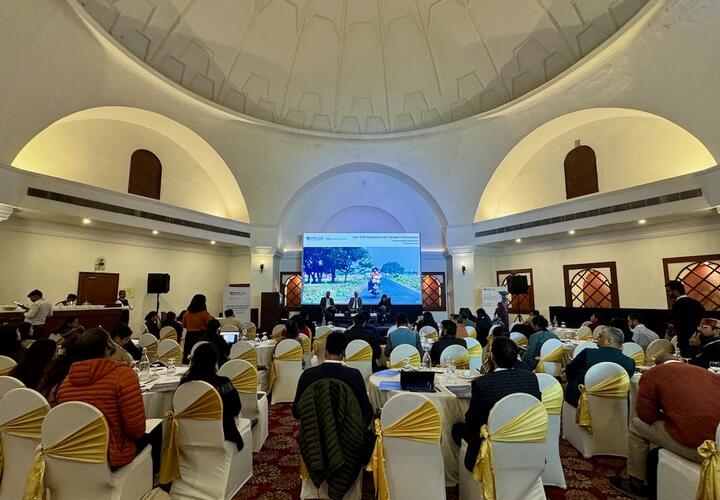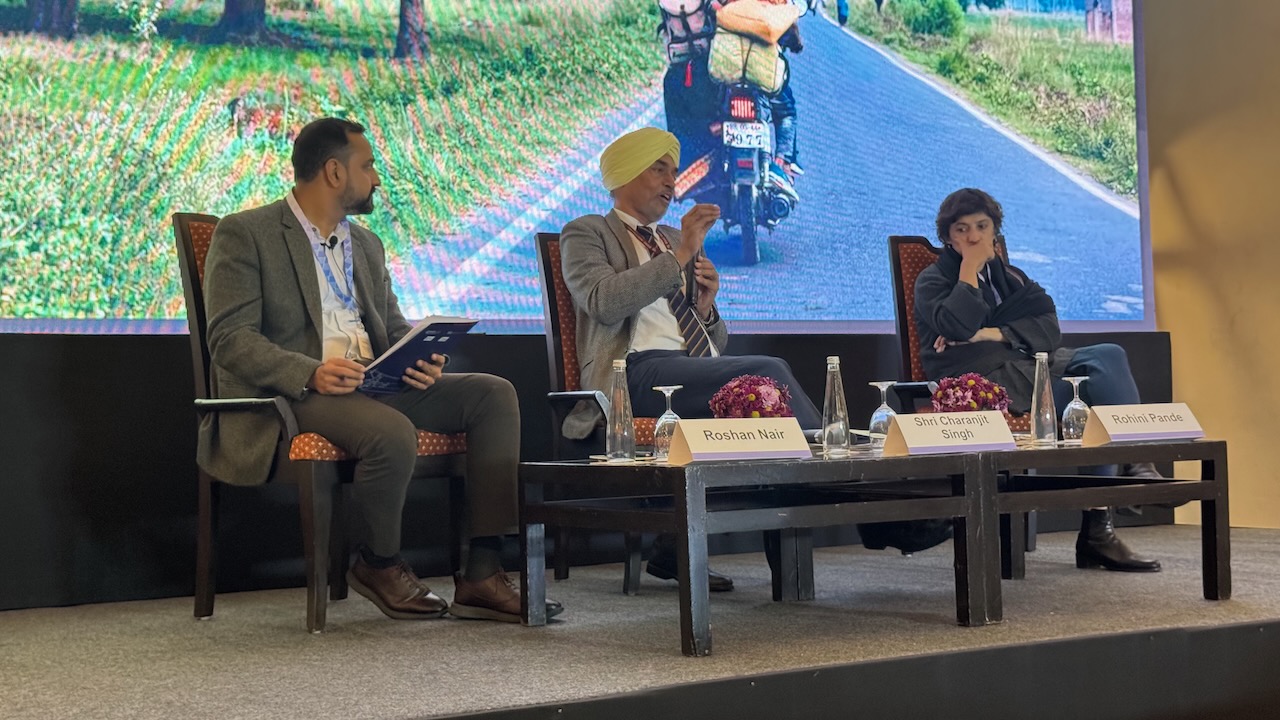Event recap: Last-Mile Innovations for Inclusive Governance: Research and Policy Symposium
In India, technological advancements within both the public and private sectors create massive potential to protect and empower citizens, but last-mile barriers still remain. On December 13, 2024, Inclusion Economics at Yale University and Inclusion Economics India Centre hosted 70 guests representing government, academia, multilaterals, non-governmental organizations, and more for a half-day research and policy symposium in Delhi to discuss effective tools to ensure the benefits of these innovations extend to the last mile.

Dr. Rohini Pande, Henry J. Heinz II Professor of Economics, Director of the Economic Growth Center, and Faculty Director of Inclusion Economics opened by presenting findings from two studies currently being scaled to streamline benefit transfers and foster inclusion in MGNREGS (Mahatma Gandhi National Rural Employment Guarantee Scheme), India's flagship workfare program. Leveraging available data, the Inclusion Economics team developed the PayDash platform, providing timely information to time-constrained local government officials and reducing households’ time spent waiting for payments. Pande also discussed research from MGNREGS implementation at the last mile, which demonstrated that the combination of account opening, linking accounts for their MGNREGS direct deposit, and training women on how to use them was able to socially and economically empower marginalized women. The team is now working with a State Government to scale an updated version of this solution in the context of India’s impressive push to promote financial inclusion and invest in digital public infrastructure, like Aadhaar. In a discussion moderated by Roshan Nair (United States Agency for International Development), Shri Charanjit Singh (Additional Secretary, Ministry of Rural Development, Government of India) emphasized the importance of information flow between government and the last mile, highlighting both the need for training community level personnel and for research and evidence that draws on the experience of rural communities.

Roshan Nair (left) moderates the discussion panel with Shri Charanjit Singh and Rohini Pande.
In the second session, Dr. Maulik Jagnani, Assistant Professor in the Fletcher School and Department of Economics at Tufts University, discussed an ongoing project amplifying last-mile impact of Google’s Android-based flood forecasting and alert system in Bihar. Despite advancements in accuracy and timeliness of Google’s flood predictions, many households reported not receiving any alerts. Working together with community volunteers, Inclusion Economics researchers tested offline means of communicating the warnings. Early results show that households living in communities with these analog means of communicating warnings were more likely to receive and trust the warnings, and are more likely to prepare for floods and avoid negative health consequences of floods. Following Jagnani’s presentation, Karan Agarwal (Strategic Partnerships Development Manager, Google) discussed how learnings of how to develop the technology and ensure warnings reach the last mile have helped inform roll out of the product across 20 countries. Reflecting on these results, Shri Singh emphasized the importance of reaching marginalized populations, who will experience the most severe effects of climate change.
For more details on these studies, check out the policy briefs attached to this page, and stay tuned for updates as all three of these projects move to scale.